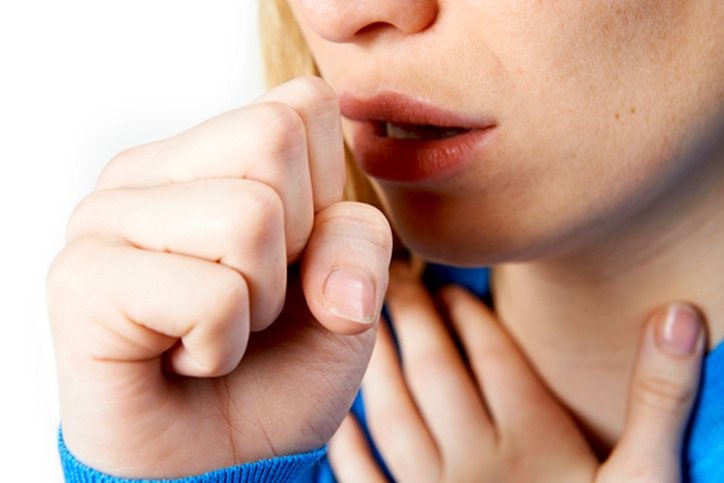
Cough: what causes it and how to treat it
A cough is a rapid forced exhalation with a closed glottis, voluntary or reflex, aimed at clearing the airways of foreign bodies or irritants
Types of cough
A cough can be
- dry (non-productive)
- productive, with sputum expulsion of more or less purulent mucous material.
It can also be
- acute: lasting less than 3 weeks;
- subacute: lasting between 3 and 8 weeks;
- chronic: lasting more than 8 weeks.
The approach to the patient with a cough must follow a diagnostic criterion aimed at excluding serious underlying processes
This process begins with a careful history (smoking habit, occupational exposure to toxic substances, taking ACE inhibitors) and a thorough objective test.
Often a history and objective examination are sufficient to explain the cause of a cough; if they are not, the causes are investigated more thoroughly with laboratory and instrumental tests such as a chest X-ray or respiratory function tests.
Causes of cough
The most frequent causes of an acute cough are:
- upper respiratory tract infections
- sinusitis;
- pneumonia.
The most frequent causes of chronic coughs, on the other hand, are represented by:
- chronic bronchitis;
- sinusitis;
- airway hyperresponsiveness after resolution of a viral or bacterial respiratory infection;
- gastroesophageal reflux;
- chronic obstructive pulmonary disease (COPD).
Symptoms not to be underestimated
In the presence of a cough, the warning signs that should not be underestimated are
- dyspnoea (difficulty breathing)
- haemoptysis (sputum mixed with blood);
- weight loss;
- persistent fever.
Treatment and therapy
The treatment of a cough consists of treating the cause.
At the pharmacological level there are
- antitussigens, such as codeine, which act on the cough centre by depressing it and thus reducing the cough;
- expectorants, such as n-acetylcysteine, which reduce the viscosity of secretions facilitating their expectoration with coughing;
- bronchodilators, such as ipratropium, or inhaled corticosteroids, which may be effective for coughs secondary to upper respiratory tract infection or in asthma.
Why the cough increases in the evening
At night, coughing is more frequent due to the greater activation of the parasympathetic system (bronchus constricting tendency) than the sympathetic system (bronchus dilating tendency), which leads the smooth muscles to relax, offering greater resistance to the flow of oxygen.
In addition, in patients with gastro-oesophageal reflux, lying down leads to an increased flow of gastric material in the upper respiratory tract, causing irritation that triggers coughing.
For such patients, behavioural rules such as not consuming acidic foods (jams, chocolate, oranges) before going to bed are indicated, as well as avoiding eating immediately before going to bed.
If these precautions still do not suffice, anti-reflux medication should be taken before bedtime.
Read Also
Emergency Live Even More…Live: Download The New Free App Of Your Newspaper For IOS And Android
Bronchiolitis: Symptoms, Diagnosis, Treatment
Chest Pain In Children: How To Assess It, What Causes It
Bronchoscopy: Ambu Set New Standards For Single-Use Endoscope
Bronchiolitis In Paediatric Age: The Respiratory Syncytial Virus (VRS)
Symptoms Of Bronchiolitis In Infants And Children. How Is It Treated?
Paediatric Seasonal Illnesses: Acute Infectious Rhinitis
Pediatrics: What To Do In Case Of High Fever In Children?
Seasonal Illnesses: What To Eat When You Have Flu?
Plaques In The Throat: How To Recognise Them
Tonsillitis: Symptoms, Diagnosis And Treatment
Sore Throat: How To Diagnose Strep Throat?
Sore Throat: When Is It Caused By Streptococcus?
Pharyngotonsillitis: Symptoms And Diagnosis
Flu Vaccine For Children? Paediatricians: ‘Do It Now, Epidemic Already Started’
Paediatrics / Recurrent Fever: Let’s Talk About Autoinflammatory Diseases
Q Fever: What It Is, How To Diagnose It And How To Treat It
Respiratory Allergies: Symptoms And Treatment
RSV (Respiratory Syncytial Virus) Surge Serves As Reminder For Proper Airway Management In Children
Acute And Chronic Sinusitis: Symptoms And Remedies
Symptoms And Remedies Of Allergic Rhinitis
Respiratory Or Food Allergies: What Is The Prick Test And What Is It For?
Anaphylactic Shock: What It Is And How To Deal With It
Sinusitis: How To Recognise That Headache Coming From The Nose
Sinusitis: How To Recognise And Treat It
Flu Vaccine For Children? Paediatricians: ‘Do It Now, Epidemic Already Started’
Rhinitis, Inflammation Of The Nasal Mucous Membranes
High Fever In Children: What Is Important To Know
What Is Bronchoscopy And When Is It Used?
Echo-Doppler Of Vessels: Characteristics And Limitations Of The Method
Bronchial Asthma: Symptoms And Treatment
Bronchitis: Symptoms And Treatment
Bronchiolitis: Symptoms, Diagnosis, Treatment
Chest Pain In Children: How To Assess It, What Causes It
Bronchoscopy: Ambu Set New Standards For Single-Use Endoscope
Respiratory Distress: What Are The Signs Of Respiratory Distress In Newborns?
Respiratory Distress Syndrome (ARDS): Therapy, Mechanical Ventilation, Monitoring


